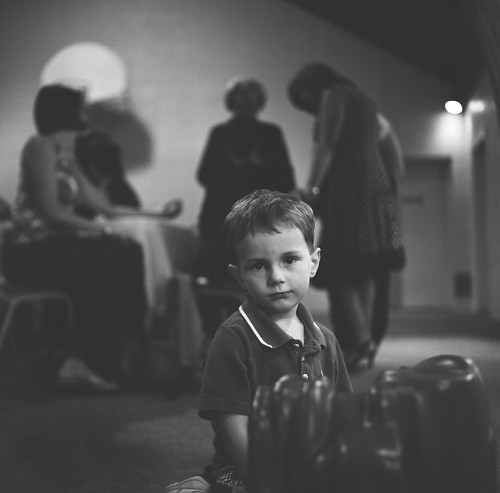
Photo: Jake Matthews
Helping Children Cope With Death
by Tiffany Provost
Death is never easy to cope with, but it is very hard for kids. There are many ways in which you can help your child cope with the loss of someone close to them. Here are tips on how to discuss death with your young child.
Be forthright. Children are more capable of understanding and accepting death than many might think. It's not necessary to "sugar-coat" the truth. Try telling them exactly what happened, that Grandpa died, instead of using terms such as 'passed on', 'departed', or 'went to heaven'. You should say the correct term, "death", to avoid confusing the youngster. You must use the right terminology so that the child understands what death is.

Photo: SammyJ1020
Practice the skill of careful listening. After a child learns that a loved one has died, it is important that you make yourself available to listen to his or her thoughts and feelings. It may take some time before children are ready to discuss their losses. Eventually, they will want to share their feelings with you, and you need to be prepared for this.
Tell the truth. Honesty and straight answers are necessary when the right time comes to discuss death with your children. Often for youngsters the first time they deal with a death is very baffling. They will ask about the reason the person departed, the reason for death, and what will happen next. Once more, don't turn the question into something trivial by giving back some kind of a pat answer. A child will easily understand the meaning of death if you approach the subject with analogies that are simple to understand. You shouldn't go overboard with details, yet provide them with sufficient information to put their mind at ease (be sure that the child's age is taken into consideration before deciding about the details you will reveal about death). This is a challenge they will have for life, so it's best if they understand death now. It is possible to be of assistance by providing useful answers.
Assist the child in the grieving process. After the child learns what has happened to her loved one, she will sob in her own way. Right now you need to just let her feel comfortable and express her feelings as she sees fit. Some children will show their emotions through creating illustrations. Some kids might write a story, talk, or even play a musical instrument to express their feelings. Do not disturb or guide a child when it is trying to express grief. It is healthy if it is left up to them.

Photo: AL Gator
Allow the child to decide whether or not to attend the funeral. She may not be comfortable attending the funeral (or other family customs that mark the passing of a close person). It ought to be up to her whether to attend or not. Help the child to decide by explaining why it's important for everyone to have a funeral and what actually occurs at a funeral. Children will feel comfortable attending the funeral if they realize that it is a way to honor a loved one's life. While you may have to talk the child into accompanying you, a funeral can actually help your child come to terms with the death of someone who they were close to.
Tiffany Provost writes about dealing with grief and family and relationships tips for HowToDoThings.com.